SUMMARY
This is AI generated summarization, which may have errors. For context, always refer to the full article.
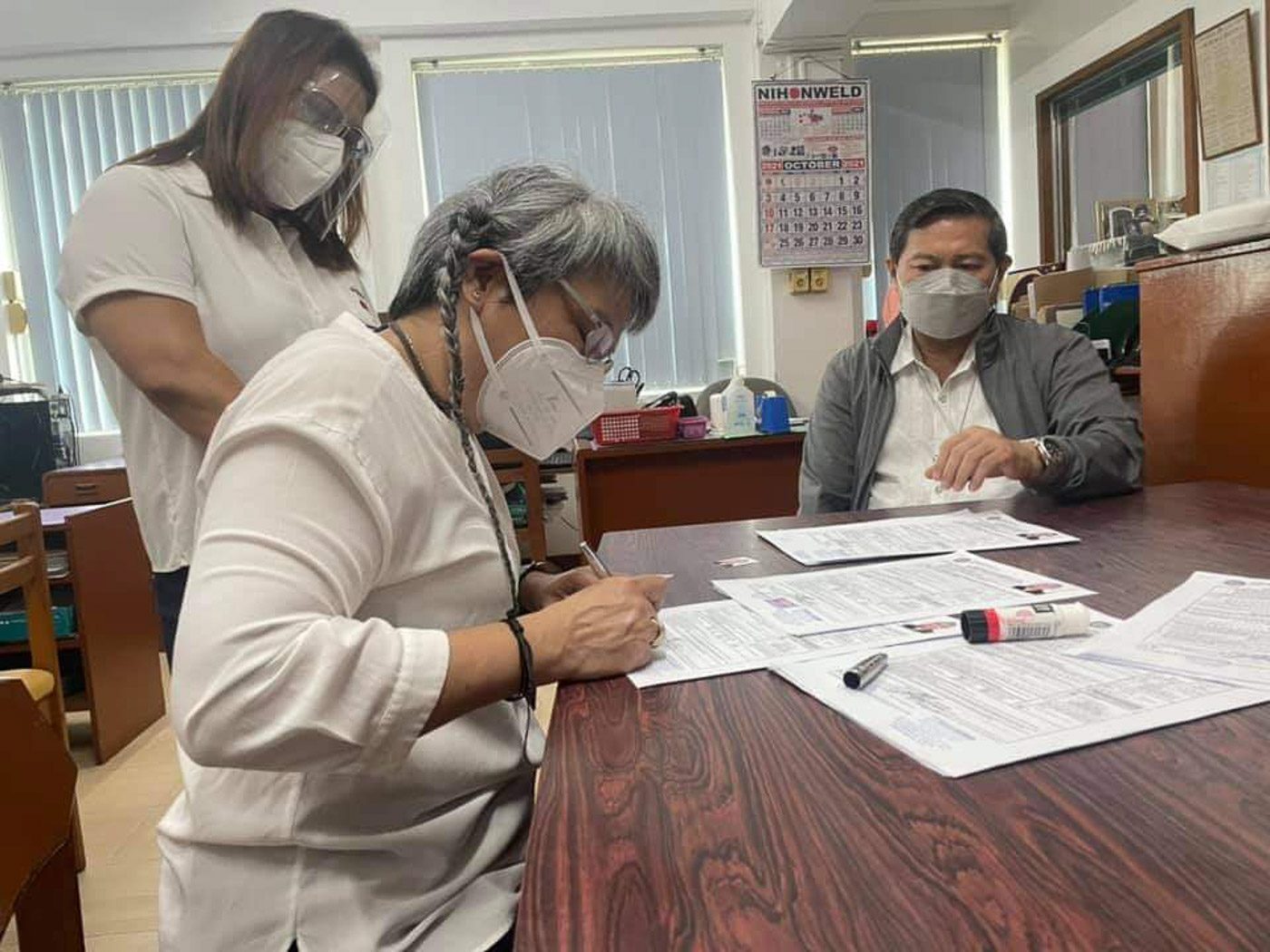
CAGAYAN DE ORO CITY, Philippines – Bespectacled Mags Maglana could be wearing her hair the way she’d always done: a singular plait dangling down her right shoulder, past her chest, while most of her silvered hair is bobbed.
Did Mags, as she is called among colleagues in the intersecting peace and development circles, flip that hank of head-tail as she talked seriously on the phone, contemplating the extant conditions of gender inequality in Davao City and the country on the eve of the global observance of the 16 Days of Activism Against Gender-based Violence (16DAAGV) in November?
“Is this a paradox or an irony?” she began.
In hindsight, it appeared to us to be both paradox and irony; in fact, a ghastly contradiction. “The Davao local government has achieved several milestones on the issues of women’s rights and empowerment,” continued the 50-something gender empowerment and peace-building advocate and facilitation expert.
She went on to enumerate the legislation passed by the Davao City Council, including the Gender and Development Code of 1997 that integrated GAD in all areas of local governance.
“But the city’s political leadership that had gone to Malacanang is the biggest, loudest, and most abusive voice against women. And not only against women but also against gays – he stereotypes gays. Dili ma-reconcile (It is irreconcilable) how in the same breath…,” she said, stopping for a moment but found her voice again.
“What this leader said in public pronouncements and his public conduct is an attitude, how (for him) women are viewed as sexual commodities. This stereotyping, this abusive language is not consistent with the quality of local legislation,” she went on.
“It weighs heavy on the mind. Because there is a demonstration effect, in a sense, here. Public officials, hearing him would say that it is all right, puwede ra man diay dili motuman, ma-encourage ang dili sakto (to get away with flouting the law and people are encouraged to do what’s wrong),’’ she stressed.
Maglana was referring to the misogynist aspect of “Dutertismo,” the authoritarian leadership of President Rodrigo Duterte whose political bastion was founded in this southern city in Mindanao after the 1986 EDSA People Power Revolution.
5Gs vs 3Gs
But that Thursday evening, November 24, which was also the eve of the national observance of the 18 Days of Activism to End Violence Against Women and Children (18DAEVAWC), she did not dwell further on this and instead segued to how the concerns of women are embedded in her five-point legislative platform that finds expression in the clever mnemonic, “5Gs/5Ms.”
But she also pointed out her perspectives are shaped not only by feminism but also by the more inclusive lens of SOGIE (Sexual Orientation, Gender Identity, and Equality).
Earlier, her colleague lawyer Romeo Cabarde, who is also her campaign coordinator, explained these 5Gs and 5Ms to us. Cabarde, himself a human rights and SOGIE advocate, said that the catchphrase means:
- Governance
- Good quality of life
- Grassroots-oriented approach to peace and human rights
- Global solutions to disasters and climate change
- Genuine post-pandemic economic recovery
Determined to offer an authentic “alternative to the Duterte dynastic playbook,” Maglana filed her candidacy on October 8 for the lone seat allotted for the 1st District of Davao City in the May 2022 general elections.
She further explained that 5Gs (aside from alluding to the most advanced cell phone technology) is the counterculture she and her group offer as the alternative to the “3Gs” of Philippine elections: guns, goons, and gold. The 5Ms is an approximate Bisayan translation of the 5Gs.
Running for a congressional seat means she is challenging the President himself by proxy as she would be up against the president’s son Paolo Duterte. The challenge is happening right in their bailiwick, where Paolo had won a landslide victory in 2019.
District 1, consisting of 54 urban barangays – 40 in the Poblacion, the commercial area; and 14 in the Talomo area. It is the most populous of the three congressional districts but second to the hinterland 3rd district in land area.
It is the most vote-rich: District 1 voters (389,332) comprised nearly 40% of the city’s almost one million voters in the 2019 elections.
President Duterte is a resident of Doña Luisa Village in District 1’s Matina area. Paolo lives in Skyline subdivision, in the more affluent neighborhood of Catalunan Grande, where January Navares, Paolo’s wife, is the barangay chair.
‘On listening mode’
Maglana foresaw the 5Gs/5Ms agenda as an evolving framework. “We have to craft this right now as we cannot start a conversation with the people of District 1 without outlining where we stand. [But] we are in a listening mode,” she stressed, adding that she would meet some senior women in the community.
Among these sages/crones that Maglana leaned on for advice and support is the feisty Patricia Sarenas, former Abanse congresswoman and chair of MinCODE, the federated networks of nongovernmental organizations in Mindanao.
“Kami ‘yung mga babaeng may lakas loob. Dili kami ma-terrorize ni Digong (We are the daring women. Digong cannot terrorize us),” said Sarenas.
Sarenas said she has oriented Maglana on the responsibilities of lawmakers.
Like Sarenas, Maglana takes an anti-patronage stance on service delivery. They believe in putting up the systems to make these services more efficient and accessible to the public as a matter of right, without the people feeling beholden to politicians.
“Queue, it is called queue (also spelled ‘cue’ ),” she readily replied when asked about that signature hairstyle she has been sporting daily for about 25 years now.
“Its significance for me has evolved. It has been an object of reference: ‘yung sunduin mo may buntot na buhok’ (You will fetch someone who has ‘a tail of hair’). Someone said it is a sign of my attitude of ‘calculated irreverence’ because while I respect cultures and institutions, I am not beyond stretching borders to the next freedom. Or [the] stage of the possible,’’ Maglana said in a chat message.
Irene Santiago, peace negotiator and a former vice presidential candidate, sensed what Maglan meant by the next stage of the possible. “I am glad she has the willingness to throw herself into the fray despite the toxicity, the atmosphere of hate prevailing in elections,” Santiago said.
“She could stand a chance for she has the qualities of a transformative public leader. Now, would she win elections? Of course, she still has to campaign,” she added.
A personal decision
For Maglana, the commitment to transformational public leadership began with the assertion that her cause is “not only a matter of a group push” but also a personal decision. “I have to own it; I must claim my agency. I was convinced this has to be done,” Maglana stressed.
Maglana did not just come out from the woodwork of activism and development. As a daughter and therefore scion, she shares the bloodline of the fierce nationalist Constancio “Tanciong” Maglana – the first and last congressman of Davao del Sur before Martial Law cut short his term in 1972. And 53 years later after Tanciong was elected in 1968 – also Maglana’s birth year – she rises to take a shot at a congressional seat.
A day after the 16DAAGV and on the penultimate day of the observance of the 18DAAVAWC, Maglana appeared with Cabarde in a webinar on the “Women for Leni” online community.
During the discussion, Maglana looped back to where our conversation began more than two weeks ago. She ventured to confront the same paradox/irony that weighed heavily on her mind. She found a resolution to the contradiction.
“Kaya pa rin naman nating matingnan na magkahiwalay ang civilian bureaucracy sa mga elected officials ng gobyerno, sa mga pulitiko (We can still view the civilian bureaucracy as an entity separate from the elected officials, the politicians),” she said.
Maglana went on to reclaim the story of the Integrated Gender Development Division at the Davao city hall.
What she was going to say might raise eyebrows, she warned, but her point was that the laws that made Davao the most gender-responsive LGU were crafted not by a single person or party alone but by, and because of, its own engaged and progressive citizenry.
“Naipundar ‘yan dahil sa pangungulit ng maraming women’s groups and people’s organizations matapos ang mahabang struggle at hanggang sa ngayon, tuloy-tuloy pa rin ang kanilang engagement,” she pointed out.
(These were put in place because many women’s groups and people’s organizations pushed for them, struggled long and hard, and even until now, their engagement continues.)
“Kung tatanungin mo sila (the IGDD) bakit sila sumusubok kahit sa panahon ng matinding pandemya (If you ask them (the IGDD) why they’ve kept doing their job despite the pandemic) – and to a certain extent, they are effective – they will tell you it is because they get strength from…because of the vibrant partnership with the women’s movement and the community.”
We would have wanted to see Maglana quickly touch the knotted tip of her pigtail when she reached that “eureka moment,” thus symbolically forming an ouroboros, the symbol of cyclic renewal.
But no, she never did. In fact, the head-tail this time was inconspicuous, slung at the back of her head, and she never called attention to it. We must say here that Wizard Mags, the pigtailed woman, the facilitator of consensus in communities, is foregrounding not herself but the wizardry of collective voices and action of the citizenry in her native city. – with reports from Leigh Franchesca Anino/Rappler.com
Lina Sagaral-Reyes is a freelance journalist based in Mindanao.
Add a comment
How does this make you feel?





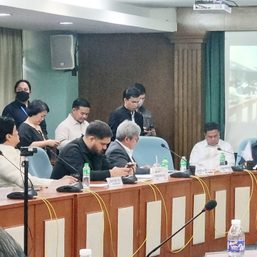
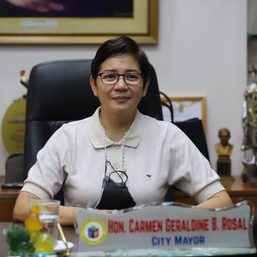


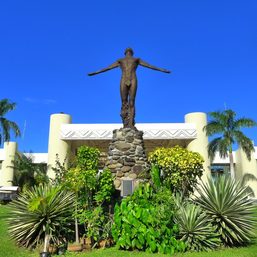
![[The Slingshot] Alden Delvo has retired](https://www.rappler.com/tachyon/2024/05/slingshot-alden-delvo-05042024.jpg?resize=257%2C257&crop=243px%2C0px%2C720px%2C720px)
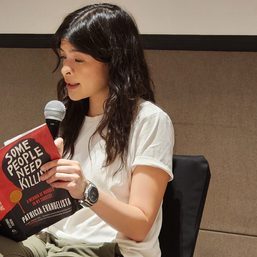
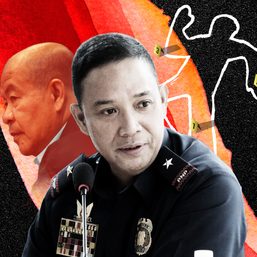

![[The Slingshot] Red zipper on the mouth of Sara Duterte](https://www.rappler.com/tachyon/2024/04/TL-red-zipper-sara-duterte-april-12-2024.jpg?resize=257%2C257&crop=335px%2C0px%2C720px%2C720px)
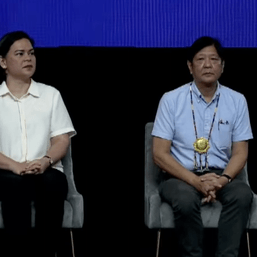

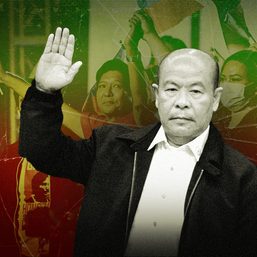

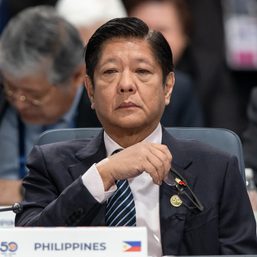
![[EDITORIAL] Diplomasya ni Rodrigo Duterte sa Tsina: Nakaluhod nang dikit ang noo sa lupa](https://www.rappler.com/tachyon/2024/05/animated-duterte-china-panatag-shoal-carousel.jpg?resize=257%2C257&crop_strategy=attention)
![[Newspoint] Willful indifference](https://www.rappler.com/tachyon/2024/05/np-willful-indifference-05032024.jpg?resize=257%2C257&crop=270px%2C0px%2C720px%2C720px)

There are no comments yet. Add your comment to start the conversation.